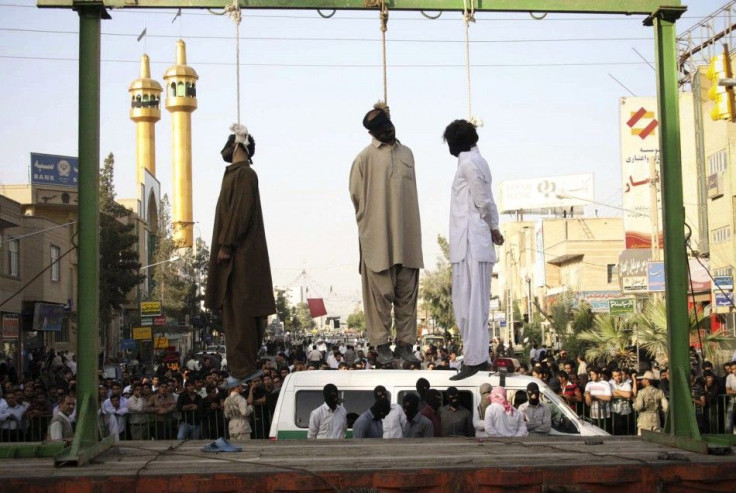Iran: Executions of Drug Offenders Skyrocketing

The death sentence imposed upon an American citizen for “spying” against Iran has again put the world’s focus on the Islamic Republic’s capital punishment policies.
But Amir Hekmati is only one of hundreds, perhaps thousands, of people in Iran who are languishing on death row, awaiting a final appointment with the hangman.
According to Amnesty International, the London-based human rights group, Iranian authorities are executing hundreds of people every year, many of them on trumped-up drug charges.
Last year, at least 488 people were executed in Iran for drug offenses, up from 166 in 2009. Many are poor, other are juveniles and some have been condemned to death without even trial.
All told, 600 people are believed to have been executed in Iran last year.
Citizens of neighboring Afghanistan are particularly vulnerable to Iran’s terrible justice – as many as 4,000 Afghans are in Iranian prisons awaiting execution from drug-related convictions.
To try to contain their immense drug problem, the Iranian authorities have carried out a killing spree of staggering proportions, when there is no evidence that execution prevents drug smuggling any more effectively than imprisonment, said Ann Harrison, Amnesty International's interim Middle East and North Africa deputy director.
Drug offenses go much of the way to accounting for the steep rise in executions we have seen in the last 18 months. Ultimately Iran must abolish the death penalty for all crimes, but stopping the practice of executing drug offenders, which violates international law, would as a first step cut the overall number significantly.
A wide plethora of crimes are punishable by death in Iran, including murder, rape, armed robbery, kidnapping and espionage (as in Hekmati’s case). However it appears that the overwhelming majority of death penalty cases involved those convicted of drug offenses.
Amnesty said it began receiving plausible reports in the middle of 2010 that Iranian authorities were commencing with a massive wave of executions of prisoners. One report indicated that at the Vakilabad Prison in the northeastern city of Mashhad as many as 89 prisoners were killed in a single day.
“In almost all cases executions have followed grossly unfair trials and the families and lawyers of those accused have often received little or no warning that executions were due to take place,” Amnesty stated.
“Members of marginalized groups -- including impoverished communities, ethnic minorities that suffer discrimination, and foreign nationals, particularly Afghans -- are most at risk of execution for drugs offences.”
Amnesty cited the case of 38-year-old Mohammad Jangali, a truck driver from the Kouresunni minority, who was executed in October 2011 after drugs were discovered by police in the truck he was driving. Jangali apparently”confessed” after he was tortured by intelligence officials.
“[Jangali’s] family were given no information about the case by the authorities until they were contacted by the prison to say that he would be executed in eight hours and they should come now if they wanted to see him,” Amnesty stated.
“He maintained until his death that he had not known that the truck contained drugs.”
However, drug addiction is a serious problem in Iran, which is also a key hub for illegal narcotics trafficking between Afghanistan-Pakistan and Europe.
All countries and international organizations helping the Iranian authorities arrest more people for alleged drugs offenses need to take a long hard look at the potential impact of that assistance and what they could do to stop this surge of executions, said Harrison.
They cannot simply look the other way while hundreds of impoverished people are killed each year without fair trials, many only learning their fates a few hours before their deaths.
© Copyright IBTimes 2024. All rights reserved.




















